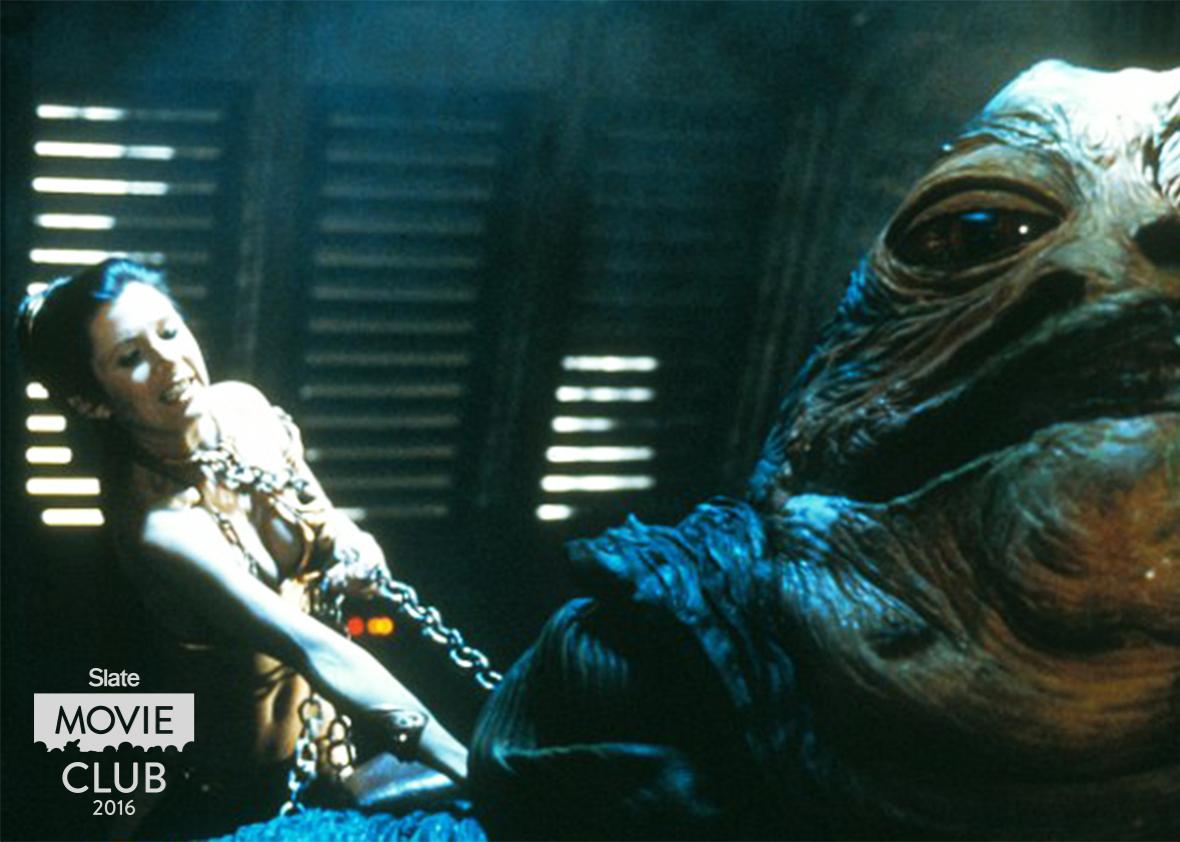Dear Bilge, Amy, and Mark,
Amy’s description of her encounters with classic Hollywood tourism on a road trip through the American West—the place that provided the setting for so many cinematic myths, and that’s now as thoroughly permeated and formed by those myths as everyplace else on Earth—gives me an excuse to take this conversation in an unforeseen direction. Unforeseen because who could have predicted that Debbie Reynolds and Carrie Fisher, two mythmaking actresses par excellence who also happened to be mother and daughter in a matrilineal Hollywood dynasty, would have died within one day of each other in the last week of the year? It’s as if 2016, a nasty piece of work from the get-go, was just waiting by the threshold under the mistletoe, waiting to give us all a double kick in the kneecaps on our way out.
After the news of Reynolds’ passing hit the wires last week, I felt the need to stay up late and rewatch Postcards From the Edge, the 1990 film adaptation of Fisher’s 1987 autobiographical novel with a screenplay by Fisher and directed by Mike Nichols. Since Mark is currently working on a Nichols biography—and as long as Star Wars has been high in the mix this past year or so with two new releases, a seventh chapter featuring Fisher as princess-turned-general Leia Organa and a, well, rogue spinoff that ends on a shot of her digitally reconstructed younger self—it’s not so out-of-place for our discussion of this year’s movies to take a jag through some Hollywood herstory. (And yes, we are going to keep coining embarrassing neologisms like that until you elect one of us president. Any tool in the arsenal.) Reynolds and Fisher, it occurred to me while watching lightly fictionalized versions of them played note-perfectly by Shirley MacLaine and Meryl Streep, were not just emblematic of—but in some ways the emblem for the position of women in Hollywood in their respective generations.
Reynolds, born in 1932, came of age at the height of the paternalistic studio system. In Postcards, MacLaine’s character, a studio-era grande dame reluctant to cede the spotlight as her self-destructive daughter’s career takes off, sings a sizzling cabaret number with a reference to sitting on “Mr. Mayer’s lap”; in real life, the 19-year-old Reynolds was hand-picked by Louis B. Mayer, over Gene Kelly’s objections, for the female lead in Singin’ in the Rain and endured unwanted advances from Kelly himself on the set. (During the filming of a kissing scene, he shoved his tongue down her throat, something it’s very difficult to picture Don Lockwood ever doing to Kathy Selden.)
Fisher was also 19 when she auditioned for Star Wars. In the post-studio ’70s, the casting process was less blatantly sexist, and Fisher’s on-set romance with her co-star Harrison Ford, as she describes it in her last book The Princess Diarist, was fully consensual. But Fisher hadn’t escaped from the patriarchal strictures that bound her mother to be nice to Mr. Mayer: It’s just that the corset and cone bra had been exchanged for a flesh-cutting gold metal bikini, a costume Fisher never tired of mocking. During her epic DGAF press tour for The Force Awakens (here’s a roundup of some of the best interviews, which Fisher often gave with her French bulldog Gary by her side), she recalled with evident relish the moment in Return of the Jedi when Leia uses her slave chains to strangle the repugnant Jabba the Hutt (whom Fisher described to one reporter as a “giant saliva testicle”). As she tells the story, the satisfaction of destroying the character who, as Leia’s sexual captor, forces her to wear the bikini, is tied into Fisher’s satisfaction at the thought of destroying her own captors: not just the film’s producers and costume designers, but a mass audience that takes for granted its entertainment will come with a side of scantily dressed girls.
Reynolds and Fisher responded in very different ways to the constrictive metal bikini of ambient industry sexism. Reynolds’ technique is well-illustrated by this red carpet photo of the two together during Carrie’s early teen years. Debbie, in full-on blonde beehive and matchy pink shorts suit, is almost aggressively plucky, feminine, and put-together, as if steeling herself against the press that stole her dignity when Elizabeth Taylor stole her husband. You want girly? She’ll give you girly. (Shirley MacLaine telegraphs this use of conventional femininity as armor wonderfully in Postcards from the Edge.) Carrie, on the other hand, struggled with the role of starlet from the beginning: She resented her sexist typecasting, slipped into addiction and climbed back out, and eventually blessedly gave up the ghost on the stay-hot-forever fight and let herself become who she wanted to be: a writer, script doctor, and mordant observer of the Hollywood scene.
Why does this paired reflection matter, in the first week of 2017, except as a tribute and a farewell to two unsinkable women? Well, there was a moment this year when a lot of us thought women were about to wrap their chains around their captor’s neck and give a good long satisfying squeeze until they saw the life drain out of his loathsome, reptilian eyes. And now Jabba is planning his inauguration. I’m glad there will be more Carrie Fisher appearances as Leia in upcoming Star Wars installments, but it seems somehow ominous that our last view of her on screen in 2016 was of her computer-reanimated image from the cinnamon-buns-and-bikini days. Are women, on screen and off, about to lose some of the ground we’ve spent so many decades trying to gain? However hard we work to become leaders of the resistance, are we doomed to be replaced by digital projections of our eternally fuckable younger selves?
Perkily,
Dana
